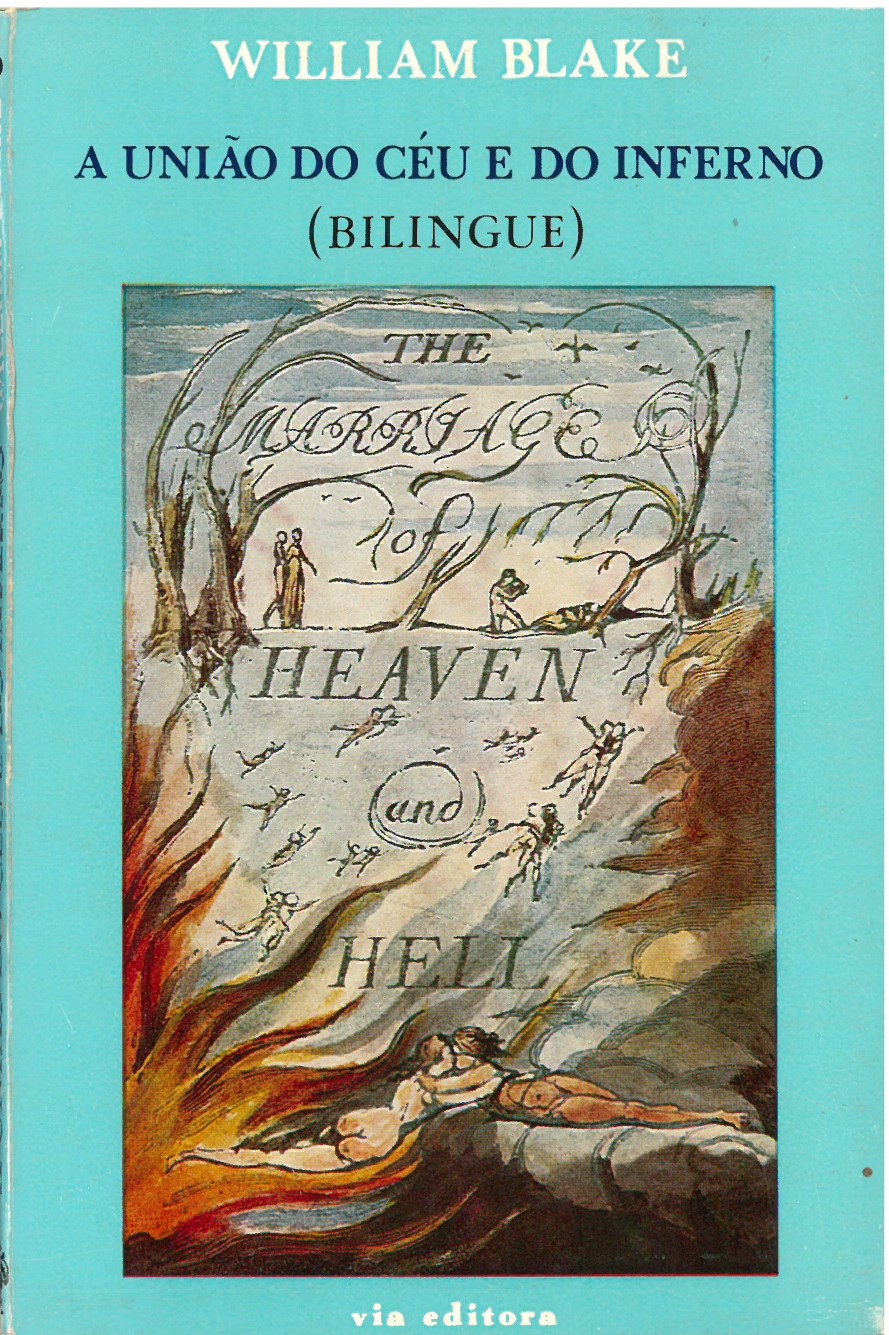What do you think?
Rate this book


90 pages, Paperback
First published January 1, 1790
Without Contraries is no progression. Attraction and Repulsion, Reason and Energy, Love and Hate, are necessary to Human existence.
From these contraries spring what the religious call Good & Evil. Good is the passive that obeys Reason. Evil is the active springing from Energy.
Good is Heaven. Evil is Hell.
Prisons are built with stones of Law, Brothels with bricks of Religion.
In seed time learn, in harvest teach, in winter enjoy.

I tell you, no virtue can exist without breaking these ten commandments; Jesus was all virtue, and acted from impulse, not from rules.
Blake wrote The Marriage of Heaven and Hell. If I have written of their Divorce, this is not because I think myself a fit antagonist for such a genius, nor even because I feel at all sure that I know what he meant.And yet... I, too, do write of their divorce.
"Listen closely," said the Besht, "I was once driving a coach with three horses—one brown, one black, and one white—and they were not able to neigh. A gentile peasant called out to me from his coach, 'Slacken the reins!' I slackened the reins, and once again the horses were able to neigh. Do you understand what I'm saying?"Blake's Devil's assertion that Jesus "murder'd those who were murder'd because of him" is just absurd—and "turning away the law from the woman taken in adultery" didn't condone her adultery, merely pointed out the hypocrisy of those who would punish her. He did not steal any labours to support himself; he did not bear false witness by omitting a witness before Pilate, he simply omitted making a witness at all. There's a better argument for him having coveted a normal life, but Blake doesn't mention this—his argument for Jesus having coveted is nonsense. Even if he were right on all six accounts, that's still only six out of ten!
The most sublime act is to set another before you.But others are just perplexing. We are told that "The eagle never lost so much time. as when he submitted to learn of the crow," but then that "When thou seest an Eagle, thou seest a portion of Genius. lift up thy head!"—I can hardly disagree, but I thought the crow was the smart one here? Didn't he just teach the eagle for hours and hours?
If the fool would persist in his folly he would become wise.
Prisons are built with stones of Law, Brothels with bricks of Religion.
Excess of sorrow laughs. Excess of joy weeps.
The roaring of lions, the howling of wolves, the raging of the stormy sea, and the destructive sword, are portions of eternity too great for the eye of man.
The bird a nest, the spider a web, man friendship.
One thought fills immensity.
The ancient Poets animated all sensible objects with Gods or Geniuses, calling them by the names and adorning them with the properties of woods, rivers, mountains, lakes, cities, nations, and whatever their enlarged & numerous senses could perceive. And particularly they studied the genius of each city & country, placing it under its mental deity. Till a system was formed, which some took advantage of & enslav'd the vulgar by attempting to realize or abstract the mental deities from their objects; thus began Priesthood. Choosing forms of worship from poetic tales. And at length they pronounced that the gods had orderd such things. Thus men forgot that All deities reside in the human breast."The Kingdom of Heaven is within you," eh?

"If the doors of perception were cleansed,
every thing would appear to man as it is, Infinite..."












